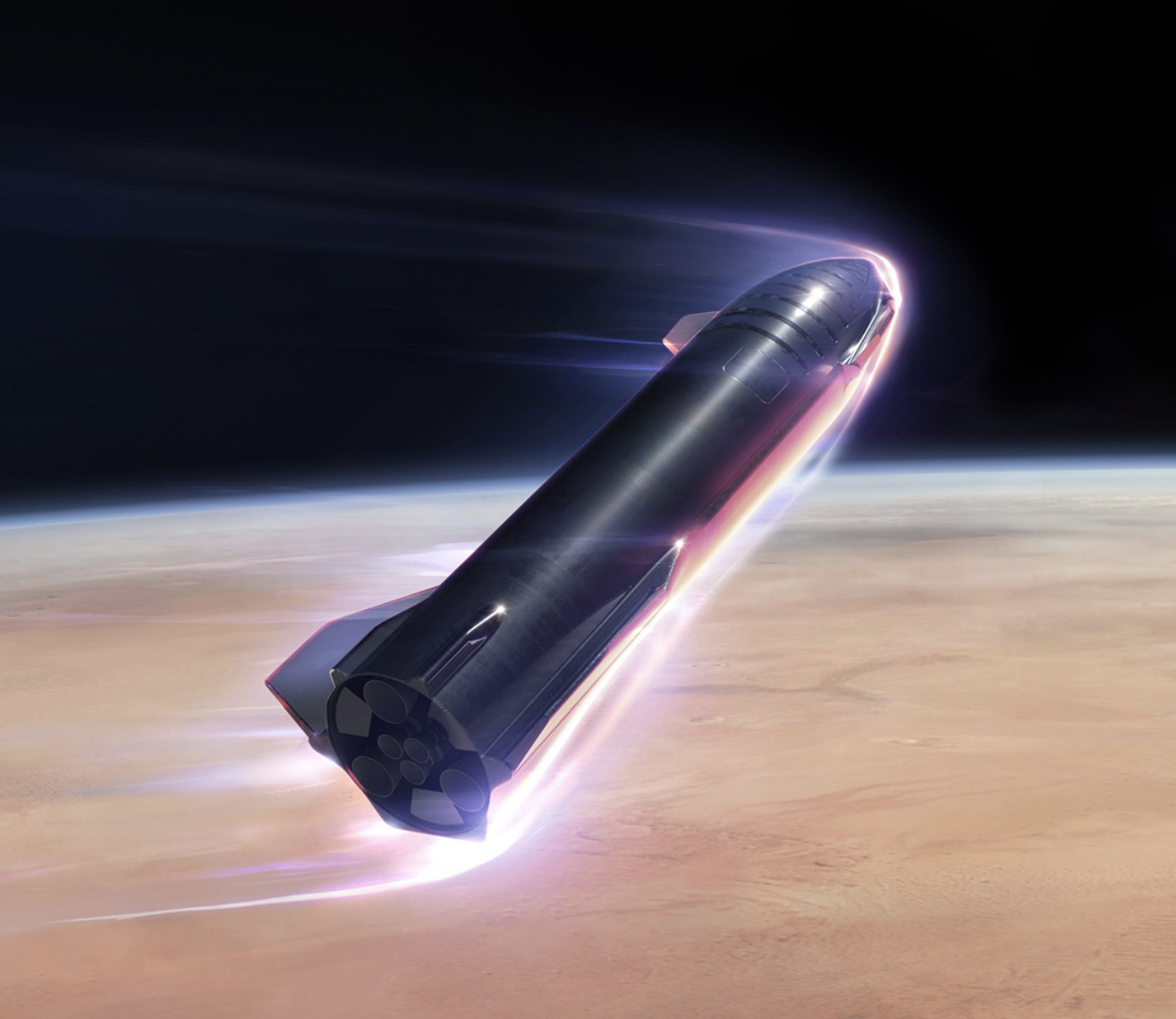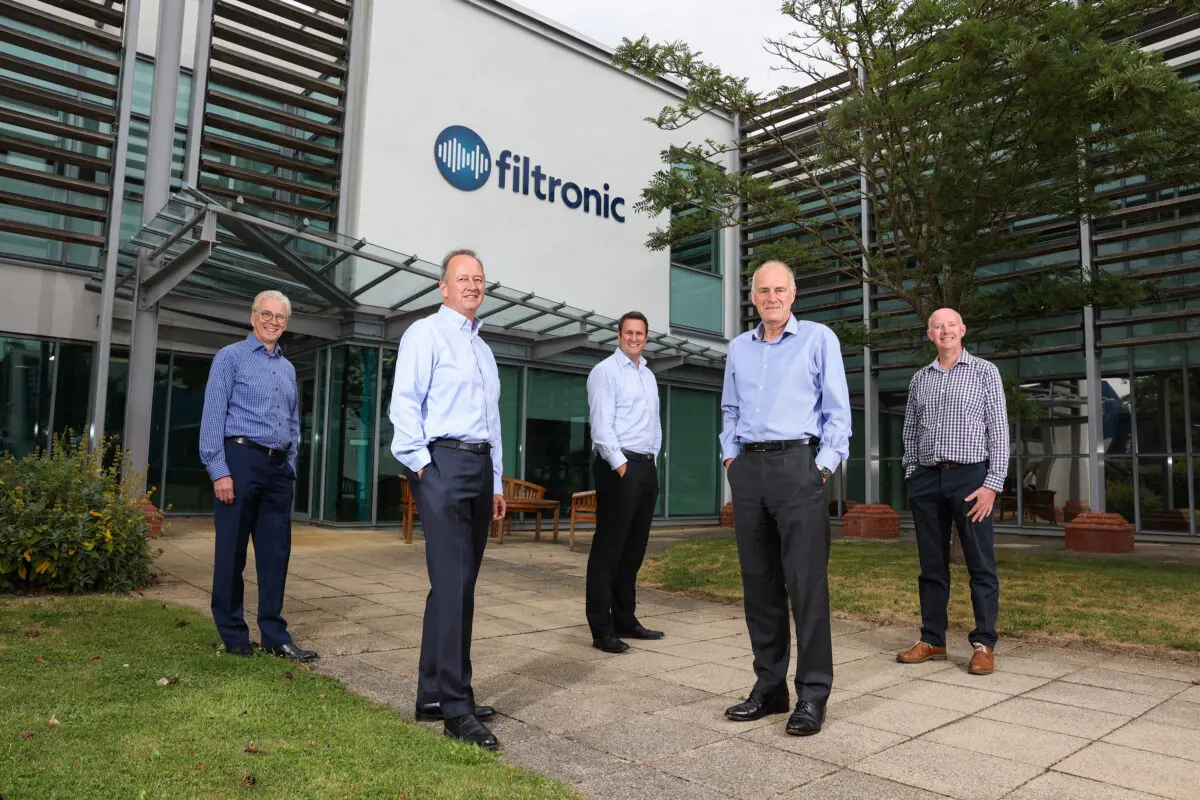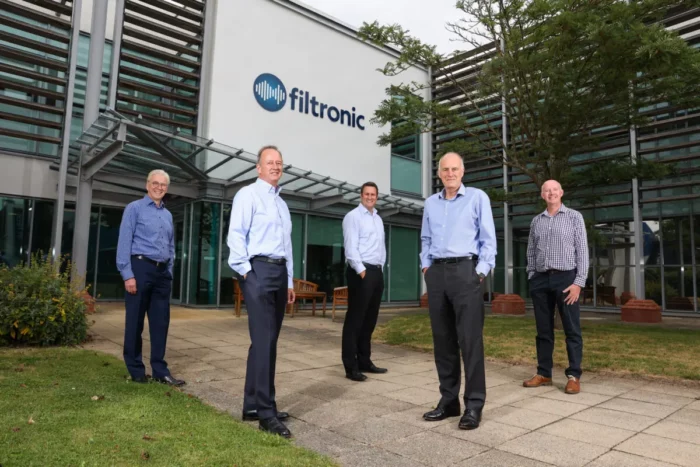In recent years, the space industry has experienced a massive surge of interest and investments as new players entered the market. According to a report by Space Capital, over US $272.3 billion has been invested in different companies within the space sector, indicating massive growth potential.
As we look ahead to 2023, there are many exciting developments to watch out for, with many innovative NewSpace companies at the forefront of these advancements. From launching small satellites to developing reusable rockets and exploring new frontiers, the companies mentioned in this article are poised to contribute significantly to the future of space exploration and commercialization.
Let’s examine these exciting NewSpace companies and what they have in store for the industry in 2023 and beyond.
Table of Contents
ToggleCurrent State Of Space Companies
The state of space companies is currently very dynamic and rapidly evolving. In recent years, we have seen a surge in private investment in NewSpace companies driven by technological advances and the increasing commercial potential of space. This has led to a booming ecosystem of innovative space companies, ranging from startups to established players contributing to the industry in different ways.
Most well-known space enterprises are focusing on developing state-of-the-art systems for global positioning, satellite communications, Earth observation, and many more. The industry is expected to experience significant growth, projected to reach US $1 trillion in revenue by 2040.
We also see a rise in space entrepreneurship globally, with new players emerging from countries like China, India, and the United Arab Emirates. These companies compete in a global market, and their success depends on their ability to innovate and bring new ideas and technologies to the industry.
15 Exciting NewSpace Companies
As the space industry continues to expand and evolve, a new generation of innovative NewSpace companies is emerging with ambitious goals and exciting visions for the future. All 15 of the cutting-edge firms mentioned below are revolutionizing the space industry in different unique ways, whether via exploration, technology, or commercialization. These companies represent space’s next wave of innovation with new technologies, visionary leadership, and a strong drive to succeed.
SpaceX
Elon Musk’s company achieved a ground-breaking milestone in 2022 when it launched 61 orbital missions, beating its previous single-year record of 31 set in 2021. The company tweeted many times to acknowledge this incredible achievement.
One of the primary elements in SpaceX’s success has been the Starlink project, which consists of a large constellation of satellites delivering internet connection to users all over the globe. Approximately 34 of the 61 launches aimed to extend the Starlink mega constellation, which now contains over 3,300 operational satellites.
In addition to the Starlink program, SpaceX has completed 27 other flights for various clients, including NASA. The company has also successfully performed four voyages to the International Space Station (ISS) – two robotic cargo missions and two human flights – using its reliable Dragon capsule and Falcon 9 rocket.
Visit company’s profile page.
Blue Origin
NASA awarded Jeff Bezos’ privately owned space company its first interplanetary contract to launch the EscaPADE mission which will explore the magnetic field around Mars. Blue Origin plans to launch its New Glenn heavy-lift rocket from Florida’s Cape Canaveral Space Force Station in the second half of 2024. The rocket’s first stage is designed to be reused and can make at least 25 flights.
Blue Origin’s smaller, suborbital New Shepard rocket has been used in flights for NASA before. Still, the EscaPADE (Escape and Plasma Acceleration and Dynamics Explorers) mission offers a new cash stream with a significant customer for the company. It also allows Blue Origin to compete with other significant businesses like SpaceX and United Launch Alliance for flights to low Earth orbit and beyond.
Visit company’s profile page.
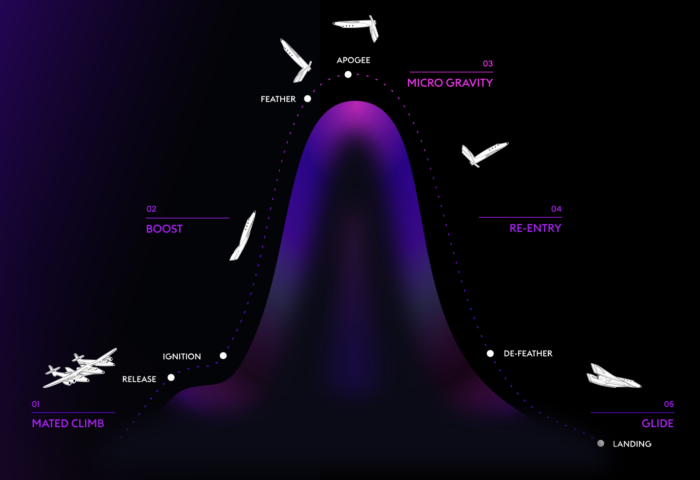
Virgin Galactic / Virgin Orbit
Virgin Galactic is one of the most prominent NewSpace Companies which develops and operates commercial spacecraft to provide suborbital spaceflight to space tourists where they can experience weightlessness. The company utilizes an air-launch system to take their customers on a 90-minute journey reaching speeds of up to three and a half times the speed of sound.
Passengers have an opportunity to get an amazing view of Earth as the cabin features 17 windows. Virgin Galactic’s vehicle uses feather technology folding in half while in space, behaving like a capsule on re-entry. Once it has re-entered the thickest parts of the atmosphere, the wings come back down, allowing the vehicle to glide.
Virgin Galactic started working on the satellite launch development of LauncherOne, which has been the main vehicle of Virgin Orbit since 2017. LauncherOne is a horizontal launch rocket, carrying small satellites into orbit. The company has completed numerous missions for customers such as the US Space Force, NASA and Spire Global.
Visit company’s profile page.
Space Perspective
Space Perspective is a private spaceflight enterprise that aims to give space visitors an incredible intergalactic experience. Jane Poynter and Taber MacCallum, who previously collaborated on the Biosphere 2 project, an American Earth system science research facility, launched Space Perspective in 2019.
The company’s signature marvel is the Neptune Space Balloon, a high-altitude balloon that gently transports guests to the very edge of space. The Neptune Space Balloon can carry up to eight passengers and two crew members in a huge, pressurized capsule to about 32 km above the earth’s surface.
The hydrogen-filled balloon gently ascends to the edge of space over the course of two hours. When the balloon reaches its cruising altitude, it will remain stationary for several hours, giving passengers plenty of time to enjoy the scenery while also allowing them to rest, eat, and meditate.
Space Perspective wishes to collaborate with a wide range of organizations and institutions to conduct research in NewSpace companies areas such as climate science, astronomy, and biomedicine while allowing passengers to participate in experiments and research during their voyage.
Visit company’s profile page.
Skyroot Aerospace
Skyroot Aerospace, an Indian next-generation aerospace company, designs, develops and manufactures satellite launch vehicles. The company aims to make space travel affordable, cost-effective, and ecologically beneficial. With significant investments and assistance from sponsors, including the Indian Space Research Organisation (ISRO), the company has made tremendous progress toward launching its maiden rocket.
Vikram-S, one of the launch vehicles created by Skyroot, validated many technologies that would be utilized in the subsequent Vikram series of rockets. Skyroot’s goal for the next two years is to launch at least one rocket per month.
Visit company’s profile page.
Bellatrix Aerospace
Space tech startup Bellatrix Aerospace specializes in in-orbit propulsion systems and OTVs (Orbital Test Vehicles) is planning to launch a “space taxi” service. The company’s primary focus is on developing electric propulsion systems, which are a more efficient and environmentally friendly alternative to traditional chemical propulsion systems. Electric propulsion systems use electric power to accelerate and eject propellant, which generates thrust and propels the spacecraft.
This approach is more efficient than chemical propulsion because it allows for greater control over the amount and direction of thrust, which can lead to significant fuel savings and longer mission lifetimes.
Visit company’s profile page.
Leaf Space
Leaf Space is an Italian startup offering small satellite ground station services. Its ground stations are designed to be cost-effective and scalable. Their advanced technology enables reliable and efficient data transfer and mission control for small satellite missions.

Leaf Space provides mission planning, scheduling, data downlink, and storage services for its customers. The company’s services are aimed at commercial and research organizations that launch small satellites, such as universities, startups, and government agencies. Leaf Space has ground stations in Italy and is expanding its network to other locations worldwide.
Leaf Space and AST SpaceMobile have also collaborated to ensure ground station and satellite radio compatibility, mission communication simulations, and network regulatory compliance.
Visit company’s profile page.
Relativity Space
Relativity Space is a private aerospace business located in Los Angeles, California. It is currently expanding as it seeks a unique method of building rockets using primarily 3D-printed components and structures.
With thousands fewer pieces needed and the ability to make adjustments using software, Relativity thinks that their technology will enable the construction of orbital-class rockets in as little as 60 days as opposed to the years required by conventional techniques.
The firm has received over US $1.3 billion in funding and is continuing to grow, adding more than 150 acres at the NASA rocket engine testing facility in Mississippi.
Visit company’s profile page.
ABL Space Systems
Established in 2017, ABL Space Systems is a commercial space launch corporation based in El Segundo, California. It is one of the few NewSpace companies which has developed a family of rockets called the RS1 and RS2 that use modern technologies such as additive manufacturing, advanced avionics, and high-performance engines.
ABL Space Systems has already secured several launch contracts and continues expanding its capabilities while focusing on bringing innovative space solutions to the market.
Visit company’s profile page.
Firefly Aerospace
Founded in 2017, Firefly Aerospace is a privately held company based in Texas. The company has made significant progress toward its goals since its inception. Its cutting-edge technological advancements, rockets and spacecraft are more compact, economical, and efficient than those of its competitors.
Firefly Aerospace has developed several innovative technologies, including the Alpha rocket, designed to launch small satellites. The two-stage Alpha rocket can deliver payloads of up to 1,030 kg into low Earth orbit. The rocket’s launch rates begin at US $15 million, making it a viable option for small satellite operators on a tight budget.
ICEYE
ICEYE, a Finnish Earth observation company, uses synthetic-aperture radar (SAR) technology to provide reliable and frequent satellite imagery of the earth’s surface, even in challenging weather conditions. The company’s small SAR satellites are designed to be highly agile, allowing them to collect imagery quickly and efficiently. The company has developed a unique data-processing pipeline that enables users to receive up-to-date information about specific locations of interest.
ICEYE’s imagery has many applications, including disaster response, infrastructure monitoring, maritime surveillance, and environmental monitoring. The company partners with various public and private organizations, such as government agencies, defense contractors, and insurance companies.
Visit company’s profile page.
Solstorm
Solstorm, a Norwegian company, focuses on cutting-edge technology emphasizing a clean space environment. The firm’s satellite disposal system helps deorbit satellites once they reach the end of their operational life. The technology aims to lessen the number of space debris in already congested Earth orbits. The satellite disposal system increases the amount of drag on the spacecraft to speed up deorbiting. The disposal system can be deployed remotely, even if the satellite has lost power or communication with the spacecraft is lost.
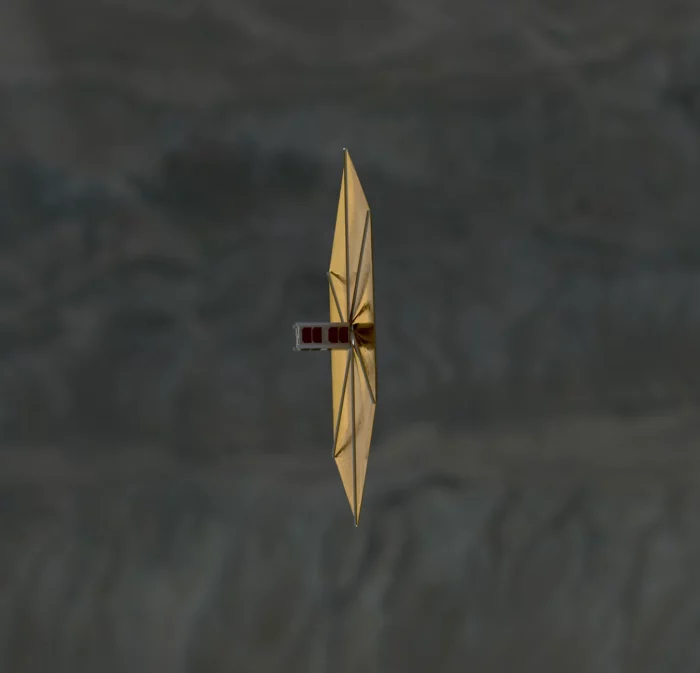
Pixxel
Pixxel is an Indian space technology startup focused on developing advanced Earth imaging solutions. The firm uses small, lightweight, and smart satellites to get detailed pictures of Earth’s surface. The company’s hyperspectral satellite constellation allows for frequent image capture.
Pixxel is capable of providing customers frequent, consistent, and timely data analytics and insights. This allows businesses and organizations to make informed decisions about various applications, from crop monitoring to disaster response.
Visit company’s profile page.
Astroscale
Astroscale is a space technology company that is focused on developing innovative solutions to tackle the issue of space debris. The company’s ELSA-d active debris removal system uses a spacecraft with a magnetic docking plate to capture and deorbit orbital junk. ELSA-M, on the other hand, uses a robotic arm to capture defunct satellites. The latter is capable of deorbiting multiple client spacecraft during each mission.
In addition to debris removal, Astroscale also provides on-orbit servicing capabilities for satellites in geostationary orbit. By helping to extend the lifespan of spacecraft, the company reduces the number of new satellite launches, contributing to a cleaner space environment while also saving money for its customers.
Visit company’s profile page.
Kymeta
Kymeta is a US-based satellite communications company specializing in developing software-enabled, meta-materials based electronic beamforming antennas and terminals for fixed and mobile platforms. The company’s primary technology is its advanced flat-panel satellite antenna, enabling high-speed broadband connectivity, even in remote areas.
Kymeta’s holographic beamforming satellite communication solutions are ideal for maritime, aviation, and land-based mobile communications applications, such as emergency services.
Visit company’s profile page.
You may also like:
- Top 10 Rocket Launch Companies To Look For in 2023
- 9 Most Popular Space Exploration Games You Must Try in 2023
- How Are We Going to Colonize The Moon?
Where Is the Space Industry Heading?
With technological advances, new players entering the market, increasing public and private investment, the space industry is poised for significant changes in the coming years. After years of government organizations like NASA dominating the space exploration business, private firms like SpaceX and Blue Origin actively pursue space exploration and commercialization. These companies are developing innovative technologies and business models that challenge traditional space industry practices.
Another major trend is the development of new launch capabilities. With the increase in demand for satellite launches and space exploration missions, companies are investing in new launch vehicles that are more efficient and cost-effective than traditional rockets. For example, reusable rockets that can be landed and used again for further missions are becoming more common, reducing the cost of spaceflights.
Final Thoughts on NewSpace Companies
With new players entering the market, technological advances, and increasing investment, there are many exciting NewSpace companies to watch in the coming years.
These companies are bringing about new ideas and approaches to space exploration, from space tourism, like Virgin Galactic and Blue Origin, to developing cutting-edge technologies, like Relativity Space and ICEYE. It is certainly an exciting time for the industry.
If you found this article to be informative, you can explore more current space news, exclusives, interviews, and podcasts.
by Danial Ibrahim
Featured image: Starship. Credit: SpaceX
Share this article:
